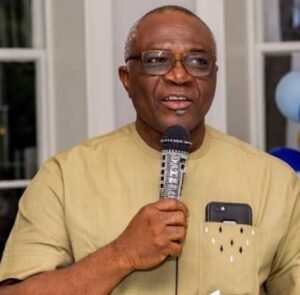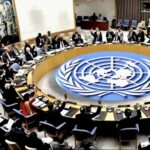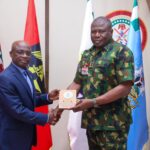By Busayo Onijala
President Bola Tinubu has urged the media to expand its monitoring role to states and local governments to ensure that allocated funds were judiciously used to cater for the people and build a self-sustaining economy.
Tinubu made this call on Tuesday at the 40th Anniversary Lecture of The Guardian Newspaper and the public presentation of the Guardian Federalist Papers entitled: “Federalism is the Answer”.
The anniversary lecture was held at the Nigerian Institute of International Affairs (NIIA), Lagos.
Tinubu said that there was too much concentration on the federal government by the media, while scant attention is given to states and local councils.
He urged states, through the Nigeria Governors Forum (NGF), to intensify, and never relent, in pointing out areas they think the central government was overbearing or usurping what should be their powers.
Congratulating the Guardian on its anniversary, Tinubu said the issues covered at the lecture would be useful to the government at various levels.
The president said he believed that federalism was the best for Nigeria because of the nation’s multilingual, multi-ethnic and multi-religious structure.
Federalism, he said, would allow the sub-nationals to develop at their own pace without the intrusion of the central authorities.
“In our action plan for a better Nigeria as enunciated in our Renewed Hope Agenda, we devoted a whole chapter to federalism and decentralisation of power, and pledged to rebalance the responsibilities and authorities of the different tiers of government.
“I believe states and local councils deserve more funds to address local developmental challenges and fulfill their obligations to their people,” he said.

Speaking on the economy, he said the government had embarked on fiscal reforms and stopped the corrupt and wasteful fuel subsidy.
He said this enabled the federation to make huge savings which were being passed to all tiers of governments by the federation account allocation committee, adding that his government was determined to unify the foreign exchange market rate.
“I appeal to Nigerians to exercise some patience. The economic reforms we are implementing come with some pains. The pains are temporary and we shall soon begin to feel the positive impacts,” Tinubu said.
In his keynote address and review of the guardian federalist papers, Prof. Eghosa Osaghae, Director General, NIIA, said that federalism was a delicate system that required delicate balancing to work.
He noted that in 1978, the NIIA brought the world to the institute and had an international conference on federalism.
According to him, the conference is significant because the world took Africa and Nigeria seriously, that it believed the nation had things to contribute to the world of learning.
“Now; albeit in 2023, several years after, we no longer are considered worthy of such contributions.
“To the contrary, we now get invited to all sorts of summits where people tell us about ourselves and we are hardly allowed to speak for ourselves. The NIIA stands strongly for a reversal of this.
“Summits on Africa must happen in Africa and the NIIA has provided a platform for this reversal that will change the global narrative and understanding of issues that are dear to our hearts, including federalism,” he said.
He said that many of the issues that were raised in the federalist papers by the guardian were already tackled in the 1978 conference.
“If those issues are the same ones being tackled today, it says a lot about the dynamic character of federalism,” he said.
The NIIA boss said that federalism was a living system that never solved problems once and for all, adding that it had to be readjusted and recalibrated as the society continued to unravel.
He opined that what is failing in Africa is the colonial inheritance.
“Federalism is the answer to the problem of management of diversity.
“The Guardian is beginning a process of resuscitating the federalist movements. In 61 writings that make up this book, The Guardian has argued that federalism is the most appropriate and suitable system for Nigeria.”
Osaghae, however, said that federalism needed to be further understood because the essence of federalism was not to be found in the constitution only.
According to him, the solutions that federalism provides require greater innovation that will suit the circumstances of individual federal situations.
“What is true of America can never be true of Nigeria because no country in the world is exactly like Nigeria. The essence of federalism is found in the nature of the community serviced by a constitution,” he said. (NAN)(www.nannewsngtinubut.com)











